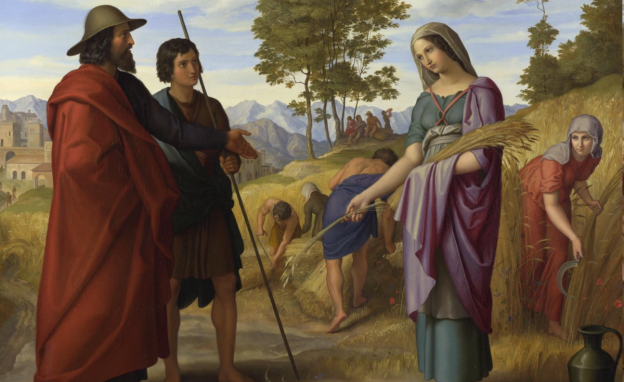After God’s rescue of the Israelites from Egypt, their journey to Sinai, and hearing God proclaiming the Ten Commandments, the next few chapters of Exodus can feel like an anti-climax. Ordinary even. Boring.
While in comparison to earlier chapters that is true, the reality is we all live in the ordinary. We take the grand redemptive story of Scripture and its implications for living, and we work them out in ordinary daily life.
In this section of Exodus, we are seeing practical advice from God on how to live in the ordinary. While some of it is culturally distant and distasteful to us, like this section on servanthood (Exodus 21:1-11), the general principles have relevance to us today.
With the Ten Commandments as the standard for community life, how were God’s people to operate every day? God proclaims to Moses “these are the rules that you shall set before them” (Ex. 21:1), before setting out example situations which could serve as precedents for daily living.
The first example was when an Israelite purchased a “Hebrew slave” (or servant, the Hebrew word refers to both). We understandably gasp at slavery’s mention, especially given the awful examples of history. Slavery in Moses’ day could sometimes take a different form, and the example here is one of voluntary servitude. For instance, because of poverty or to pay off a debt.
This servitude wasn’t forever, it was limited to six years (v.2). In the seventh year, they left free with nothing further required of them (v.2). If they went in single, they left single, if married, their family went free with them (v.3). Moreover, their former master was to liberally set them up for future success from his own possessions (Deut. 15:12-15).
The servanthood envisaged here, while not an appropriate employment model today, was meant to help someone start over. Their debts were repaid, they lived and learnt from someone successful how to manage finances better, and were released with the means to start again; hopefully successfully. They became, in a sense, part of a new family. Exploitation by the master was not on the menu.
That may explain why, in verse four, a single man who married a woman given by his master did not automatically take her with him. Odd as it seems, this would be a safety net for his wife and kids to protect them from falling into hard times if he had not learnt his lesson. If he had, he could quickly pay to redeem them from his old master.
Sometimes, the new setup was ideal for the servant and he did not want to go back to making his own way in the world. He was welcomed into the family and an affection had grown between them. In this instance, a solemn and public vow was made before God which bound the servant to the master (and family) for the rest of his life (vv.5-6). He became part of their household.
A second, similar example is described in verses seven to eleven. Marriages were often arranged. For some poor families, the daughter was “sold” to a man as a servant, with the chance of becoming a wife to the master or a wife to a son (v.7). For a poor family, this offered the prospect of their daughter (and grandchildren) enjoying a better future than they could provide.
Unfortunately this could lead to exploitation. If for some reason it didn’t work out, God forbade selling the daughter to foreigners (v.8) and if she was viewed as a desirable match for a son, she was to be treated like their own daughter even before the marriage vows (v.9).
If a “second” wife, she could not be deprived of food or marital rights so she would run away (v.10), and would be free to leave the arrangement if he refused to treat her with the respect due to a wife and fellow human (v.11).
Behind these foreign examples to us today are the principles of respect and decency. People before gain. The first examples given in this part of Exodus relate to people, not possessions.
The voluntary servant relationship may not exist today, but employers treating staff well should. Encourage them to improve themselves in their careers beyond your immediate gain. More broadly: someone owes you money? Give them a chance to pay you back, but also help them manage their finances better.
Likewise in relationships, there should not be exploitation. Husbands should love their wives as Christ loved the Church (Eph. 5), and part of that sacrificial love is providing for her needs and marital rights.
But there is one more way this passage is relevant to us. Some servants were so taken by the love shown to them that they did not want to leave. God demonstrates his love for us in sending Christ to die for our sins, when we were his enemies. As God’s servants, let’s enjoy God’s love for us so much that we are willing to serve for life in God’s household.

